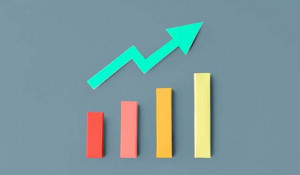It’s a great idea to consolidate your debt

It would work in your favor if you can get a loan or balance transfer with a lower interest rate than you're currently paying.
If you are very close to repaying all of your debts, you can maybe continue to do so to avoid more credit applications and associated fees.
When you don't have a good score, you need to improve your credit to bring up your score. It is also good to use a debt consolidation loan if you want to simplify your monthly payments.
If you can get one loan to pay off your debts, it should be much easier to meet your payments.
What is the best way to consolidate debt?
The best way to consolidate credit card debt depends on a person by person, it also depends on your financial circumstances and preferences.
Some of the best ways to consolidate debt can be paying off smaller amounts first and then adding those payments to the bigger bills until they are paid off. Others might consider transferring amounts to one credit card or getting a consolidation loan.
However, consolidating balances to one credit card or using a loan can be a risky move because, if you need to borrow additional money, it can be tempting to use one of the accounts with a zero amount. Then the debt will grow and you can find yourself in financial trouble and we don’t want that.
Avoid falling into bad debt, here are some tips to achieve this:
- Keep your balances low to avoid additional interest and pay your bills in time.
- It is OK to have credit cards but manage them will respond. This builds a history of your credit report. If you don’t have a history of credit cards you are considered a bigger credit risk.
- Try avoiding moving around debt with a credit consolidation loan. Instead, pay it off as quickly as possible.
- Do not go and open several credit cards to increase your available credit. You run a big risk of accumulating more debt which you may not be able to repay.
Choose the best way to consolidate your credit card debt
The best way to consolidate your debt is to consolidate it in a way that avoids taking on any additional debt. If you are facing a rising amount of unsecured debt then the best strategy is to consolidate your debt through a credit counselling agency.
If you are going to use this method to consolidate bills, you are not borrowing money. Instead, your unsecured debt payments are combined into one monthly payment to that agency, which in turn pays your creditors each month. Your credit counsellor will work with your creditors and try to reduce your interest rates and eliminate extra fees like late charges or over-limit charges.
Consider consolidating your debt
When your debt is less than half of your income. This is a fairly manageable amount that you can pay off with debt consolidation and you have a good credit score. When your credit score is 650 or higher, it means you may qualify for a low-interest loan or balance transfer credit card with a low-interest period.
You can afford repayments and you have enough reliable cash flow to cover the cost of a new loan. You will also need to have a plan to curb your spending. Debt consolidation can’t fix the underlying problem of your spending, more than you have if that is the source of your debt.
How much will a consolidation loan cost me?
A debt consolidation loan won’t cost you anything if you weren’t already going to pay the interest. While some of the debt consolidation loans come with origination fees they are usually between 1-5% of your total loan that was deducted before you received the money. It is possible to find a consolidation loan without any upfront fees.
There are two other costs you will need to pay attention to when it comes to consolidation loans; Your monthly repayments and you need to have an excellent credit and a low debt-to-income ratio to qualify for APRs that are usually between 5% and 10%.
However, you should be more concerned about the immediate costs. In that case, you want to consolidate your debt into a loan with a longer loan term. You’ll have to pay more in the end because your interest has more time to accumulate, however, your monthly repayments will be reduced.
What type of debt can I consolidate?
Understanding what kinds of debt you can consolidate is the first step toward deciding which options you might want to consider if there is any at all. People overall consolidate these kinds of debts:
Their credit card debt
When you have more than one credit card, you will have to keep track of the debts you have on each one and pay off several different amounts each month and that can be frustrating. Many credit card companies also charge noticeably high APRs that means you pay unnecessarily high interest on your debt.
Personal loans
some people have multiple personal loans, you can bring them under a single loan. Depending on your financial situation and credit score, you can qualify for a competitive interest rate on a debt consolidation loan.
Any student loans
Can be consolidated into one single loan. If you have debt from a university or college, you also want to look into refinancing it, it often comes with a consolidation option.
Business loan debt
Business lenders offer you debt consolidation loans as well to help improve your cash flow by making multiple payments into one.
Retail credit cards
The discounts and rewards they offer can be great from retailer cards, but if you have too many it can be difficult to keep track of who and what you owe and which payments are priorities.
Lines of credit
Reduce the amount you owe on more than one line of credit by paying them off.
Tax debt
When you owe taxes from previous years or you can’t afford to pay this year’s, you can consider to take out a debt consolidation loan to pay them off instead of taking on an instalment agreement. Loans have more flexible terms than instalment agreements and if you have good credit, your interest could be a lot more affordable.
What will happens after I consolidate my debt?
You can find yourself in two scenarios after getting your debt consolidation loan.
You are entrusted with paying off your debt and your lender has just deposited your loan into your account, now it’s up to you to pay off your debt. You can pay off all your debt at once or continue to make repayments if there are prepayment fees. This is only an option for people with a perfect credit rating.
You have to worry about paying your new loan and your lender has asked for your debt payment information so they can handle the payments themselves.
This situation is more common and it’s easier for you. It’s available to a wider range of credit scores and you won’t be tempted to spend some of your loan on anything else.



